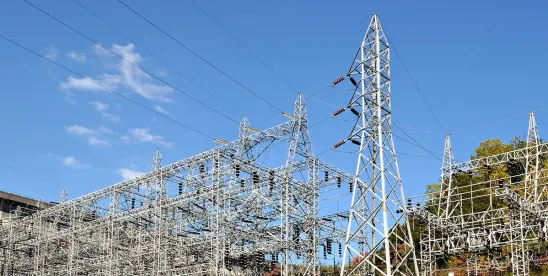The ESCO Model stands as a cornerstone of Thailand’s Energy Efficiency Development Plan.
This innovative approach is pivotal in offering expert consultancy and implementing energy conservation measures.
By leveraging the expertise of ESCOs, both private and state organizations are better equipped to achieve their ambitious net-zero goals.
It recently came to light in the news that Thailand is considering expanding its utilization of the Energy Service Company (“ESCO”) Model, where the Provincial Electricity Authority of Thailand (the “PEA”) provides all-inclusive energy management services to governmental organizations in their pursuit to be more energy efficient.
While there have been various ESCO-related activities in Thailand over the years, the ESCO market in Thailand is currently in an early stage of development. As Thailand takes substantial steps to attain its net-zero targets and decrease its dependency on energy imports, ESCOs in Thailand are at the forefront of the country’s Energy Efficiency Development Plan (the “EEDP”), which is the government’s flagship policy to reduce energy intensity by 25% in 2030. The EEDP has measures in place to strengthen and expand the operations of ESCOs.
Please see our article below that details the following:
- The structure of the ESCO Model
- Procurement of ESCO
- Qualifications of ESCO
Structure of the ESCO Model
The ESCO Model for solar projects developed and implemented by the PEA is a comprehensive approach where the PEA provides all-inclusive energy management services to governmental organizations by surveying, designing, procuring, engineering, installing, and maintaining solar photovoltaic systems (the “Solar System”) at their facilities, including measuring and verifying the actual cost savings achieved through the installation and operation of the Solar System.
The governmental organizations will pay the PEA an energy management fee calculated based on such cost savings (the “Energy Management Fee”). To render these services, the PEA will engage an ESCO to invest in the Solar System and conduct installation and O&M works on behalf of the PEA. Rights and title to the Solar System belong to the ESCO.

Relationship between the PEA and governmental organizations
The PEA will enter into an energy management service agreement with the governmental organization (the “ESCO Agreement”). The key terms and conditions of an ESCO Agreement are summarized as follows:
- The ESCO Agreement has a term of 20–25 years from the date of handover and commissioning of the Solar System;
- The scope of works under the ESCO Agreement encompasses two primary areas:
- Installation work: surveying, designing, installing the Solar System; and
- O&M work: providing maintenance services, conducting condition checks, changing equipment parts, repairing the Solar System, and continuously and efficiently monitoring electricity production, including guaranteeing the Solar System does not suffer any defects within the period specified in the agreement to prevent any electricity flow outside the area where the Solar System is installed;
- The PEA will complete the installation works within 270–360 days from the date of the ESCO Agreement or the date on which the governmental organization notifies the PEA of the handover of the site; and
- The governmental organization shall pay the PEA an Energy Management Fee on a monthly basis. The Energy Management Fee is calculated based on the electricity price charged to the governmental organization by the PEA minus a 10–20 percent discount.
Relationship between the PEA and the ESCO
The PEA will enter into a service agreement with the ESCO, outsourcing to the ESCO to develop the project on the PEA’s behalf (the “Service Agreement”). The Service Agreement generally contains a profit-sharing fee structure where the PEA agrees to share up to 90% of the Energy Management Fee received from the governmental organization with the ESCO under the ESCO Agreement. It is important to note that the Service Agreement restricts the subcontracting of “all” works related to the installation and O&M of the Solar System. The subcontracting of “certain parts” of the works is allowed, but prior written consent from the PEA is required, which the PEA may decide on a case-by-case basis.
Relationship between the ESCO and governmental organizations
We understand that the ESCO should have no direct liabilities or obligations towards the governmental organization. Further, the ESCO does not have to enter into any tripartite agreement between their organization, the PEA and the governmental organization.
Procurement of ESCO
Given that the participation of an ESCO in the ESCO Model is considered as a form of public procurement, the procurement of the ESCO’s service is subject to procedures outlined in the Government Procurement and Supplies Management Act B.E. 2560 (2017) (the “Procurement Act”) and its relevant regulations.
The ESCO must be a registered energy management service provider with the PEA (the “Registered Vendor”). Please refer to the qualifications of ESCO under Section C below. For new ESCO Model projects, the PEA will invite the Registered Vendors to submit proposals. The PEA will consider and select an ESCO for each project from a pool of the Registered Vendors.
Qualifications of ESCO
An ESCO must meet the following: (i) general qualifications for the Registered Vendor issued by the PEA and (ii) specific qualifications for each project set out by the PEA and/or the governmental organization.
General Qualifications
According to the criteria for the registration of a business operator for Type 8 Energy Management Work issued by the PEA, the ESCO eligible for registration as a Registered Vendor must meet the following criteria:
- it must have legal capacity and be a juristic person incorporated in Thailand with the objective of undertaking work corresponding to the type of work requested for registration;
- it must have qualifications and not possess any of the prohibited characteristics as specified by the Public Procurement and Supplies Administration Policy Committee, as specified in the Royal Gazette;
- it must not be declared bankrupt and undergoing business dissolution; and
- within the past five years (from the completion date of the work to the submission date of the registration documents), it must have been a contracting party with a governmental agency/organization, state enterprise, or private entity that is a juristic person. The contracts must involve design, construction and installation, and energy conservation work and/or renewable energy, with a minimum of three contracts.
Specific Qualifications
In addition to the general qualifications detailed above, the ESCO must also meet the minimum criteria set out by the PEA and/or the governmental organization for each project, including financial status, portfolios, experiences, personnel, and/or equipment and machineries for each project.
Foreign Ownership Restrictions
From our understanding, the PEA requires the ESCO to be a Thai wholly-owned or Thai majority-owned company. Foreigners are only allowed to participate as minority shareholders in such Thai companies. Additionally, the ESCO must have at least half of the total number of directors and authorized signatory directors being Thai citizens.
Thailand envisions a future where the ESCO Model evolves dynamically, empowering both private and governmental sectors to achieve their ambitious net-zero goals seamlessly.






 />i
/>i

